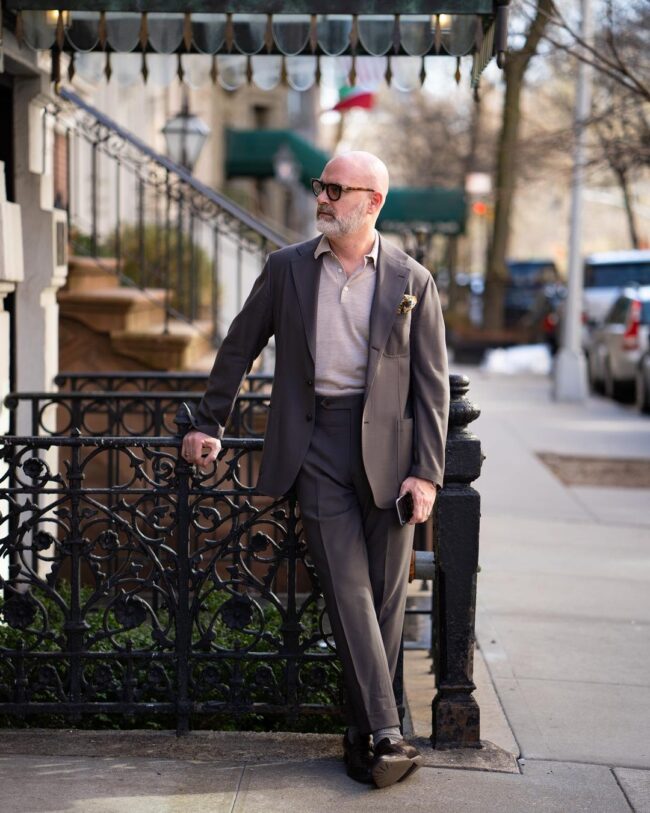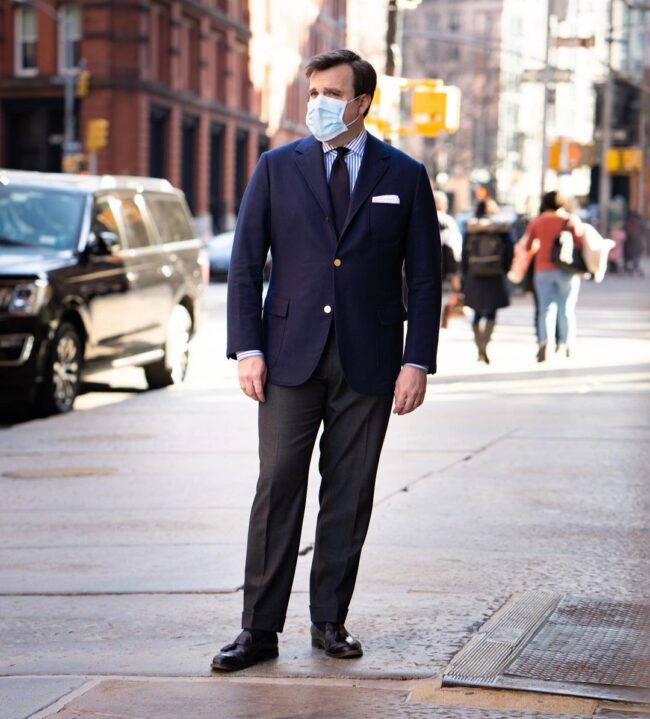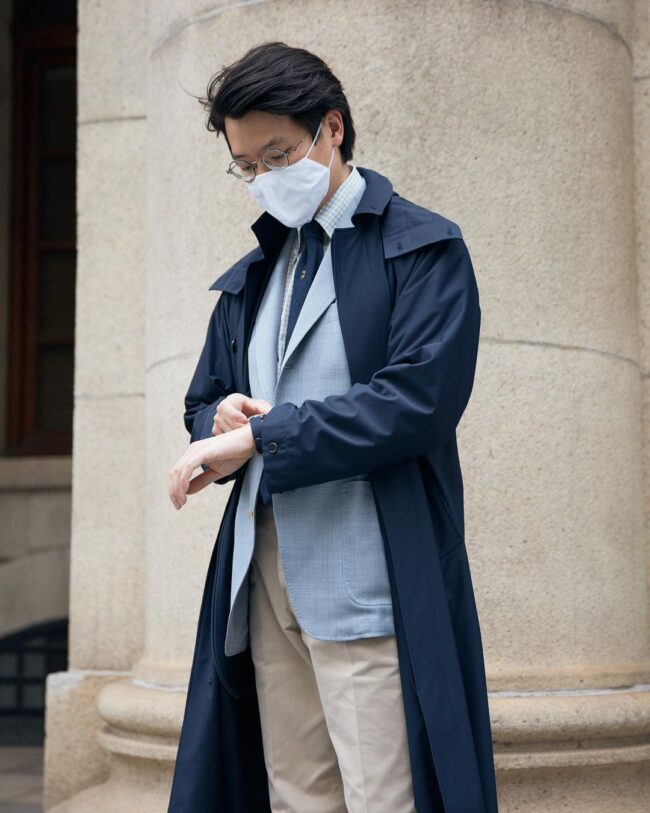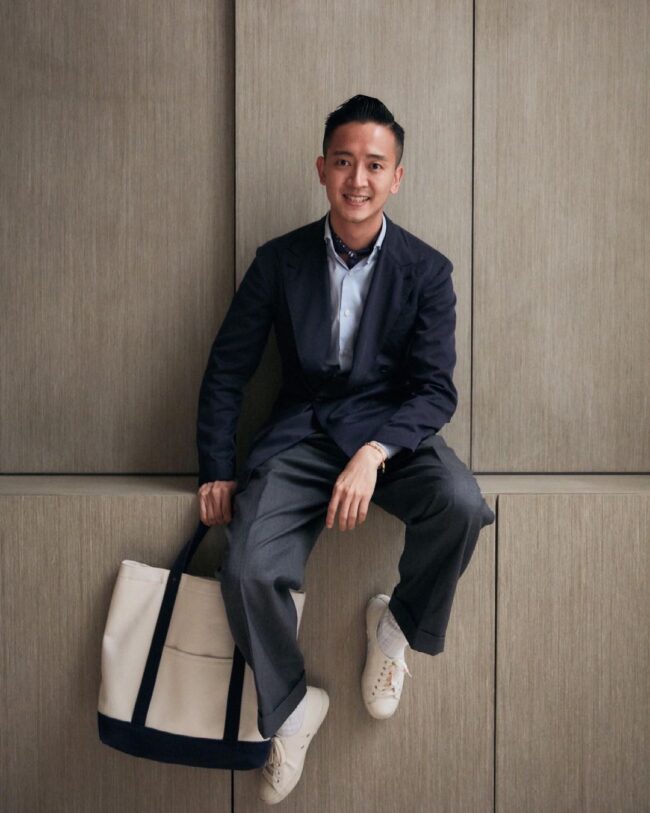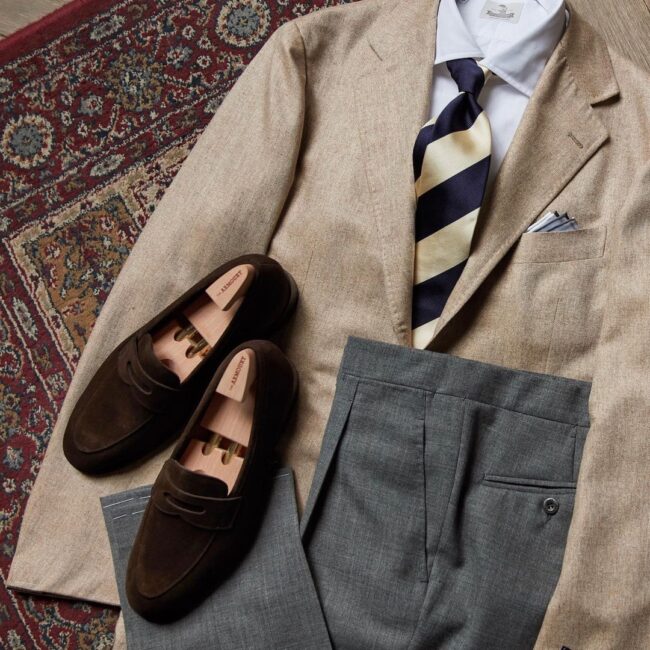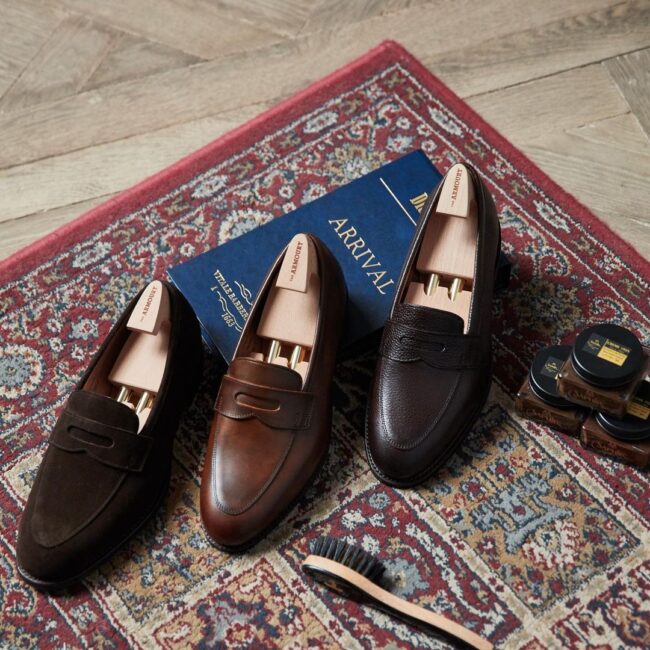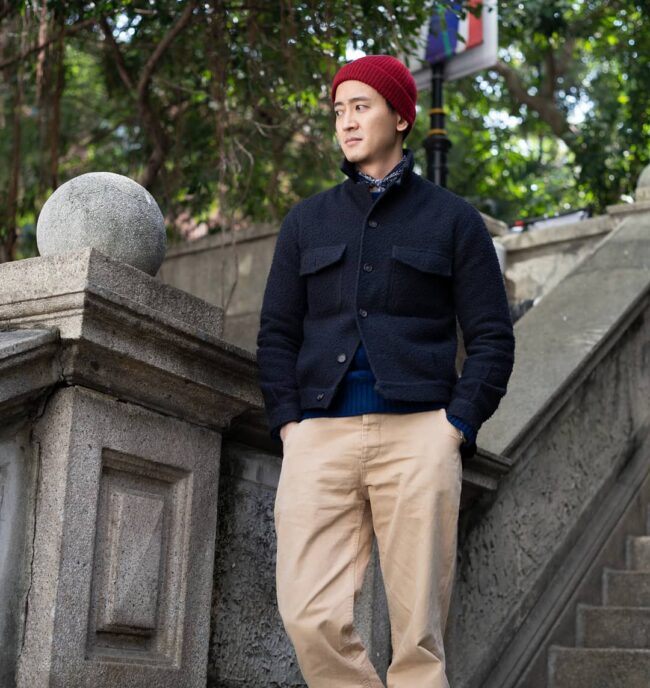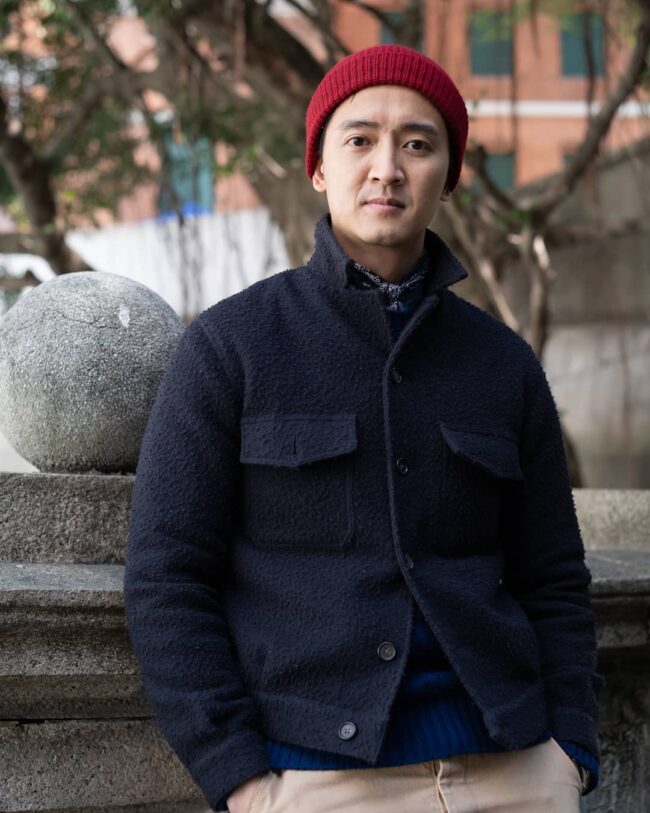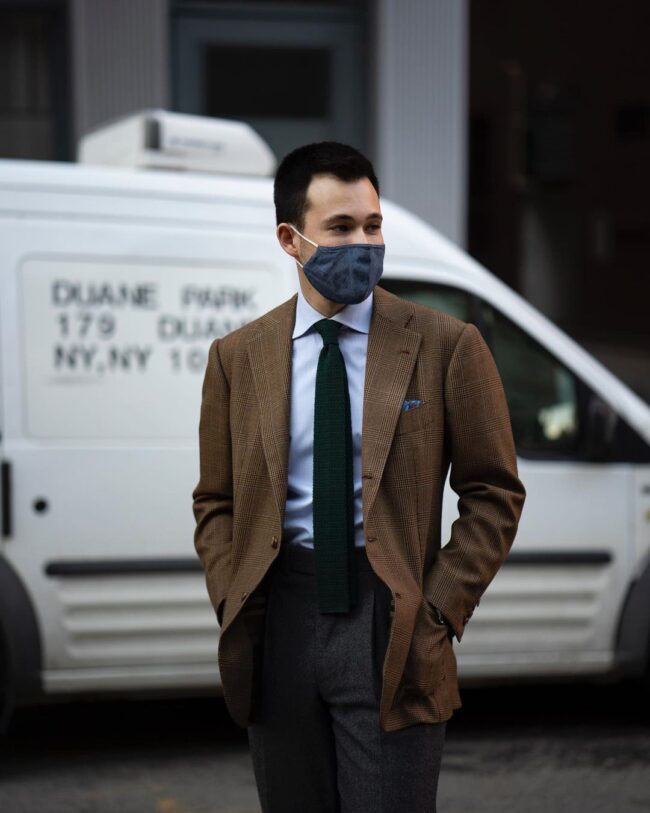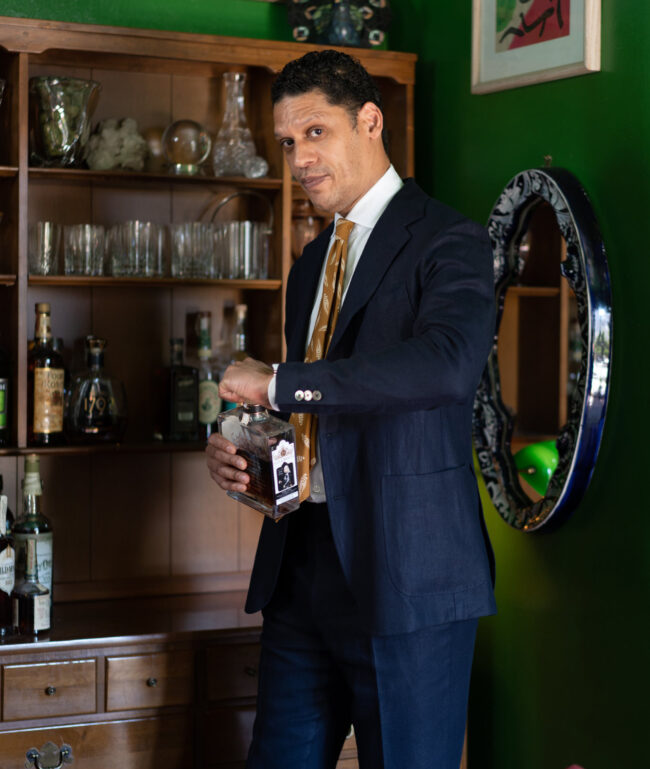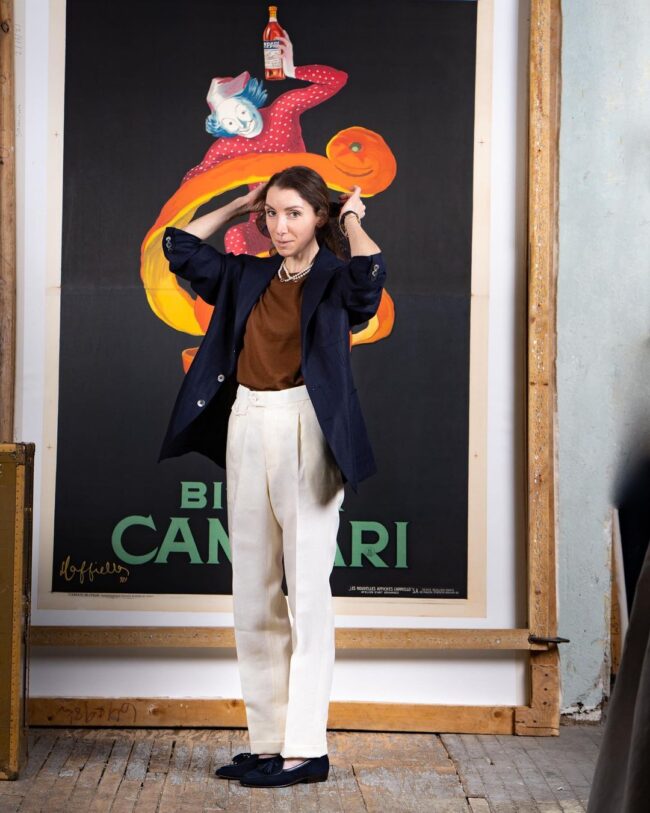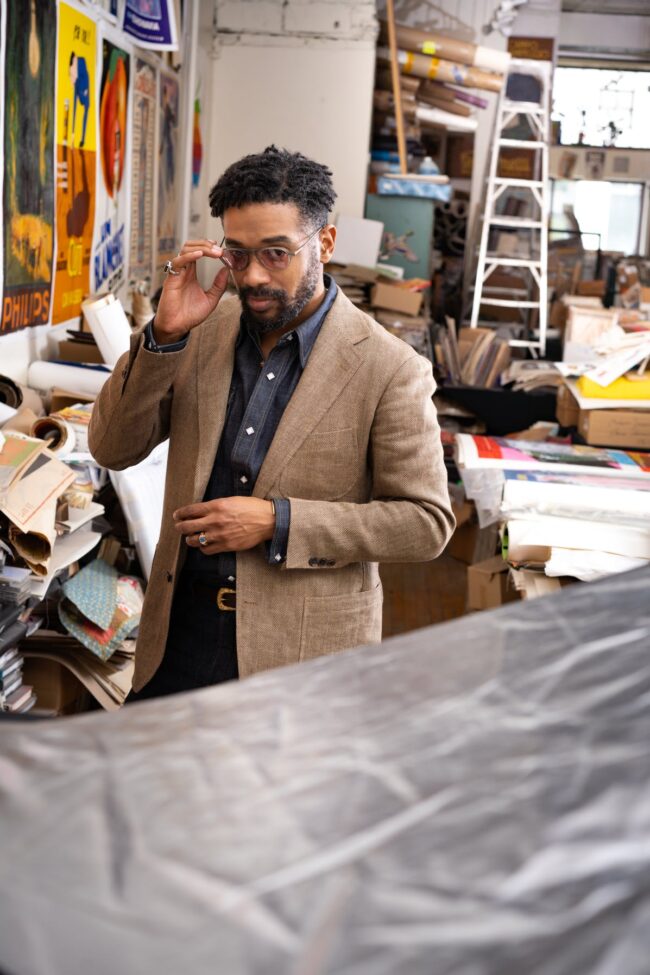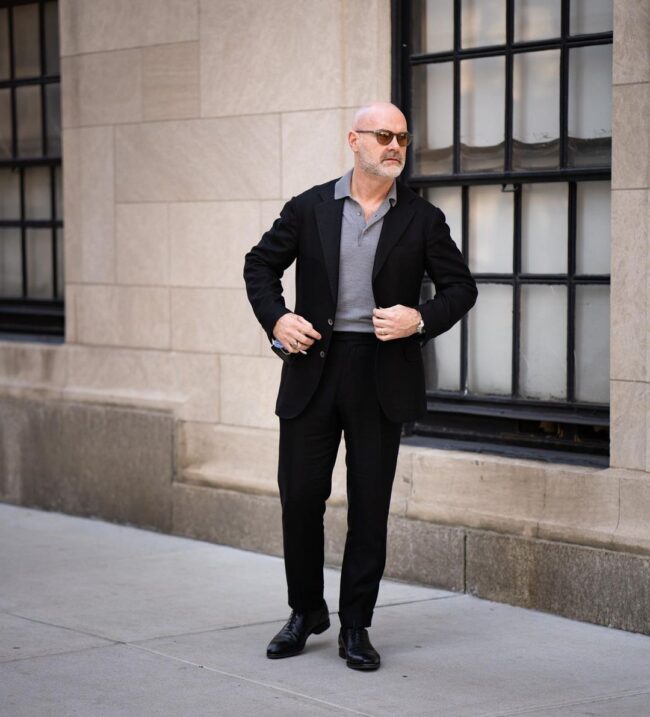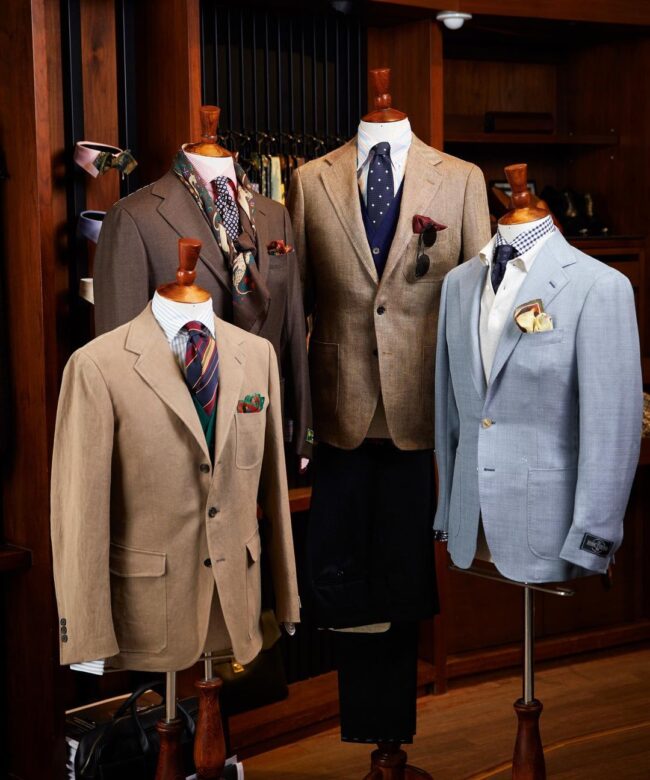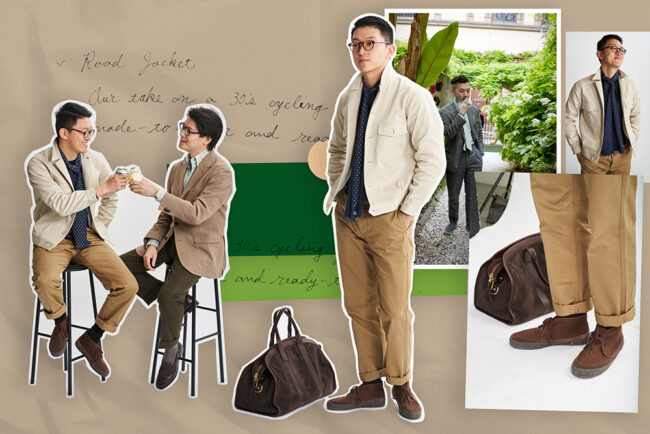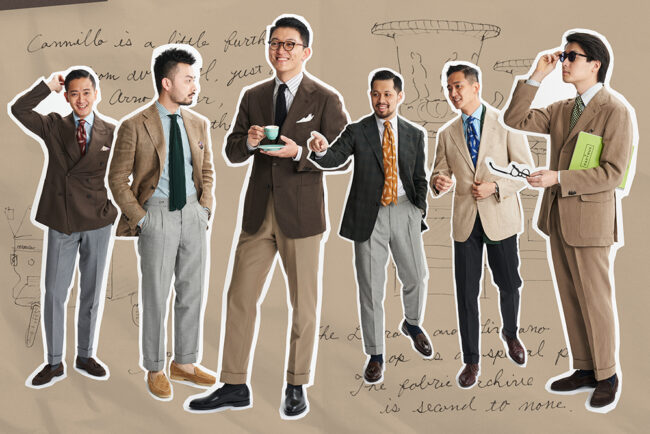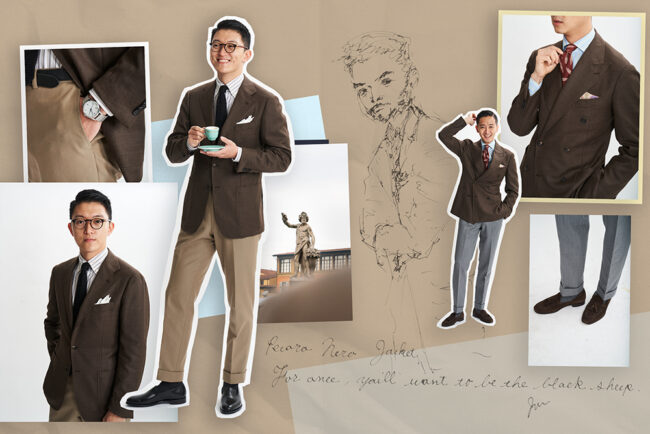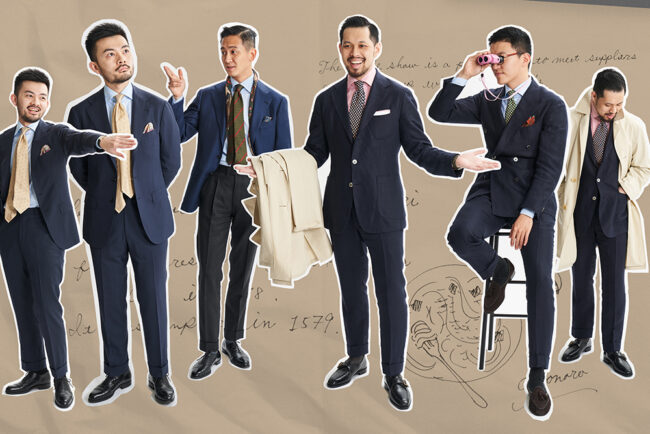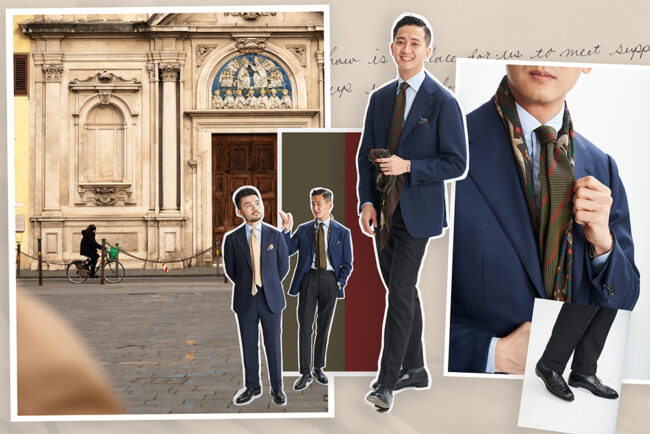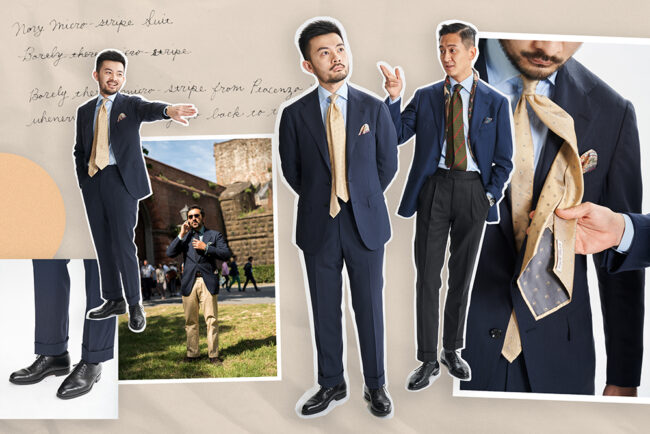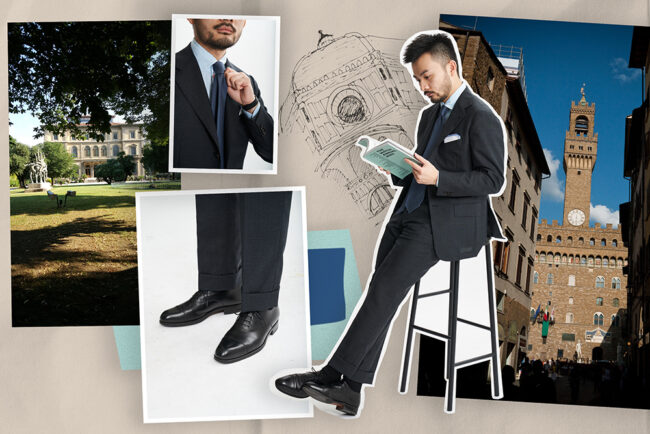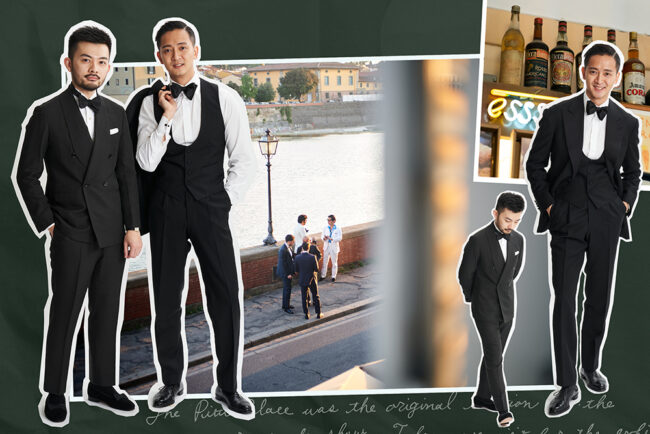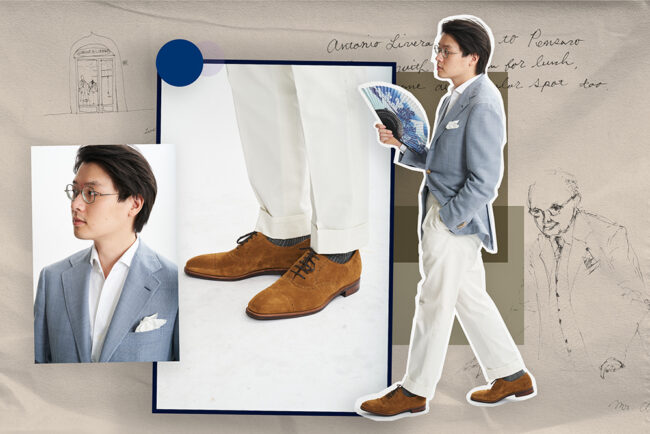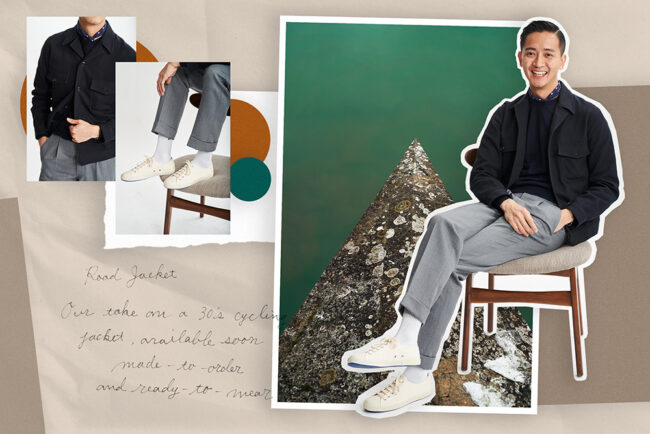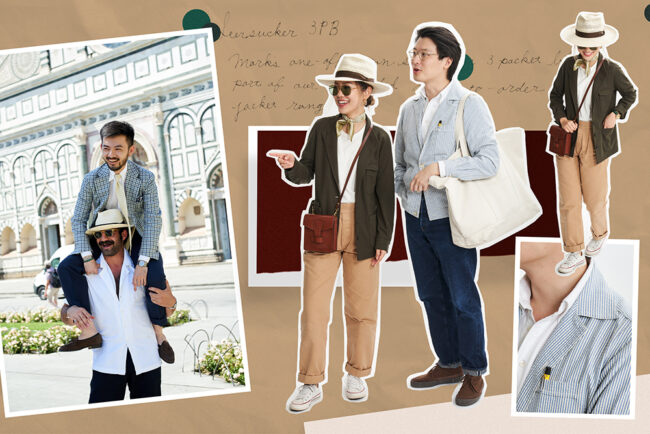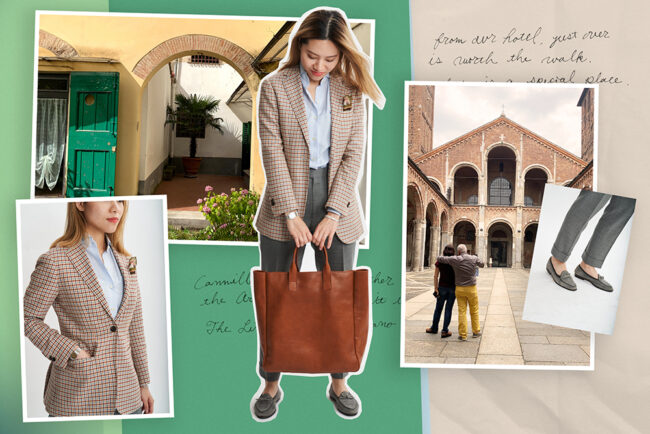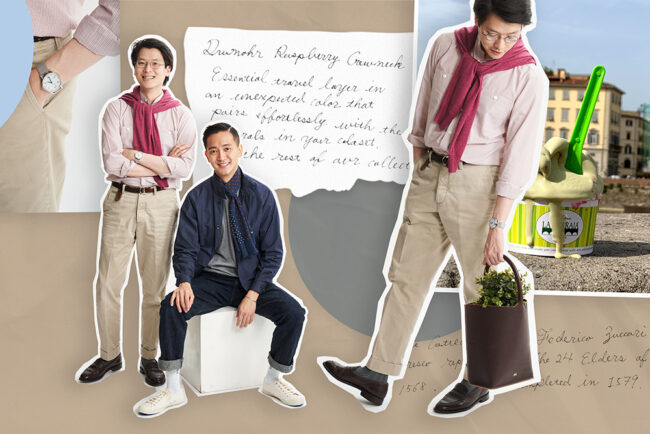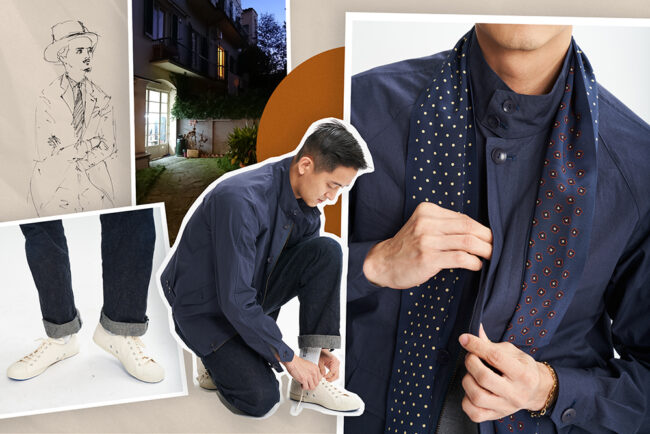
When The Armoury started putting together their spring lookbook a couple of months ago, they knew they couldn’t travel abroad. The company’s team members were stuck in their respective home cities, Hong Kong and New York City, and could only communicate with each other via phone and email. Yet, they also wanted to create a lookbook that was hopeful, an encouraging reminder that better days are ahead. “We love traveling, and we miss visiting Florence, Italy,” Mark Cho told me over the phone. “So we wanted to make something that would be a celebration of our time there.”
After drumming up some ideas, The Armoury’s co-founders Mark Cho and Alan See dug through their holiday photos, and the company’s team shot one or two people at a time in a studio, following masking rules. They then had to figure out a way to put the images together. At first, they used a green screen, but Mark says the resulting images were so terrible, a viewer would never be able to suspend their disbelief (“they were not good enough to be believable, but also not so bad that the images were funny. They were just bad.”). Eventually, they landed on this cutout sticker design. “We had a colleague illustrate things, handwrite things, and then photograph crumpled paper to give everything some texture. There are also small paint drops on the collages, echoing the colors in the clothes, which helps bring everything together.” The result is a virtual destination lookbook that feels reminiscent of a travelog.
Over the years, The Armoury’s collections have gotten noticeably more casual. Along with their suits and sport coats, they also sell sporty knitwear, holiday shirts, and workwear from The Real McCoys. Mark says he expects this to continue in a post-vaccine world. “I think things will get more casual,” he says, “which means tailoring also has to be more casual. This year’s spring tailoring can be worn in the office, but the clothes come into their own when they’re worn casually. When you show a collection like this, I think people become more comfortable with the idea of wearing tailored clothing.” If you, like me, are eager to get back into a suit or sport coat, here are some suggestions on how to wear tailoring this spring, using images from The Armoury’s new lookbook and various social media feeds.
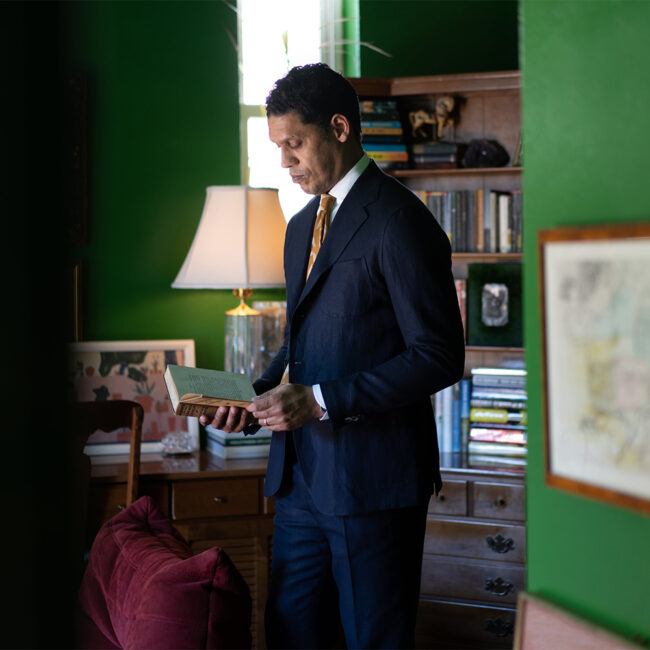
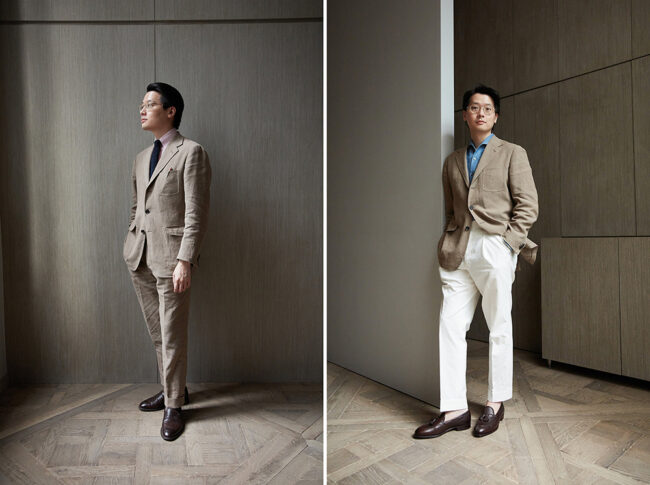
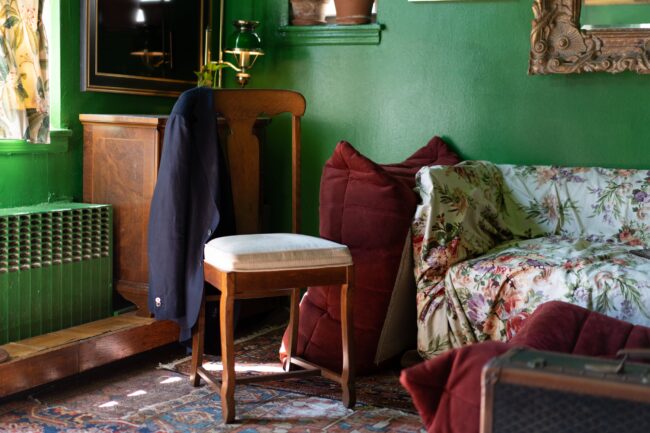
TWO WAYS INTO LINEN
Linen is summer’s ultimate fabric. It’s universally appreciated for how it wicks sweat from the skin, keeps the wearer feeling cool and dry, and gets softer with every wash. This is why linen shirts are so widely regarded as a summer staple. But when it comes to linen suits and sport coats, opinions are divided. Some believe that linen should be kept to shirts and pocket squares; others revel in the rumply nature of this plant-based fiber. Of the men who wear linen tailoring, I find there are two types of people. Knowing where you fall can help you get the most out of your purchase.
The first are those who prefer linen suits (this includes me). Since linen is prone to wrinkling, wearing a linen jacket means you have to be more considerate when choosing pants. Not only do you have to coordinate colors and patterns, but also textures and sheen. Sometimes it’s a struggle to know when a linen jacket goes with a particular pair of trousers — does the drape of wool pair well with the rumpled look of linen? Does the texture of a chunky, plain weave cotton look right next to airy linen? If you don’t like having to fuss over combinations in the morning, a linen suit is a perfect solution. There’s never any second-guessing with linen suits, as the jacket and pants always match by definition. Linen suits are ideal for lazy days and lazier people.
Then there are those who prefer linen sport coats. “We sell our linen suits as separates for this reason,” says Mark. “If you’ve never owned a linen garment before, wearing a rumple-prone suit can be kind of intimidating, so some guys like to start with a sport coat. Linen sport coats can be worn with jeans or chinos. Wool trousers also work, but it has to be the right type of wool. I wouldn’t do a woolen or even a soft worsted — it should be a high-twist wool that feels crisp and dry, like tropical wool.”
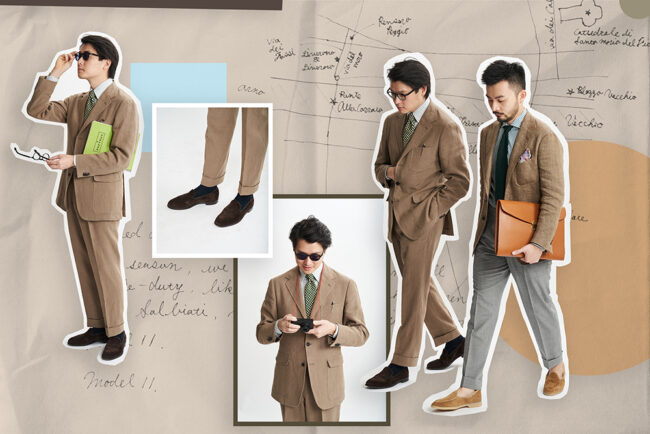
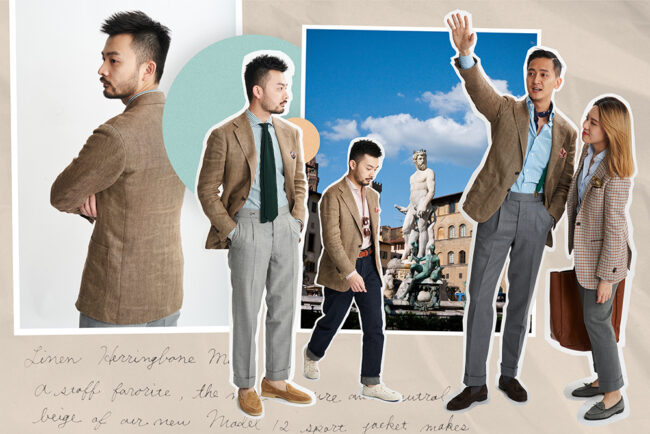
The Armoury has linen suits and sport coats this season, available in staple colors such as navy and tan, as well as single- and double-breasted closures. Along with being able to break the suits up into separates, the company also sells a brown herringbone linen sport coat that Mark describes as this collection’s “most versatile piece.” “You can wear it with anything,” he says. “It goes with dark blue jeans, tan chinos, and grey tropical wool trousers. This jacket is made in our relatively new Model 12 cut, which has a single-piece back, no vents, and a slightly dropped gorge. I think of the style as being very ‘old school Italian.’ Antonio Liverano once told me that, when he started tailoring, he didn’t put vents on anything until people started requesting them one day. Gianluca Migliarotti’s sport coats also have that slightly lower gorge.”
This season’s linen suits are made from a heavy, velvety linen sourced from the Italian mill Solbiati. The fabric is made with what the mill calls an “aloe finish,” but rest assured, it’s not actually made with aloe — it simply feels creamy to the touch. Mark’s favorite garment this season is the mushroom-colored Model 11 suit, which he says he wears both as a suit and separates. The Model 11 is The Armoury’s homage to classic American style. It has a natural shoulder line, undarted fronts, and arrow point pockets. If you take a close look at the lapels, you can see a tight, pronounced line of machine stitching inset about 7 millimeters from the edge. That’s an old Ivy style detail, as classic American clothes historically felt sportier and more rugged than their Savile Row and Southern Italian counterparts.
“I’ve been wearing the Model 11 a lot because I like American style, and I’ve been spending a lot of time with Tailor CAID,” Mark says of his affection for this suit. “The Model 11 has the same shoulder construction as the Model 3 in terms of padding and width, but we took out the spalla camicia. We also removed the darts, which of course, changes the shape of the waist. We tried to get as much shaping as we could out of the side seams, but there’s obviously a limit to that. Personally, I don’t need my jackets to be shaped like an hourglass. The Model 11 is very forgiving of different body types because it’s relatively straight up and down. It’s a very easygoing style and reminiscent of that old Brooks Brothers look.”
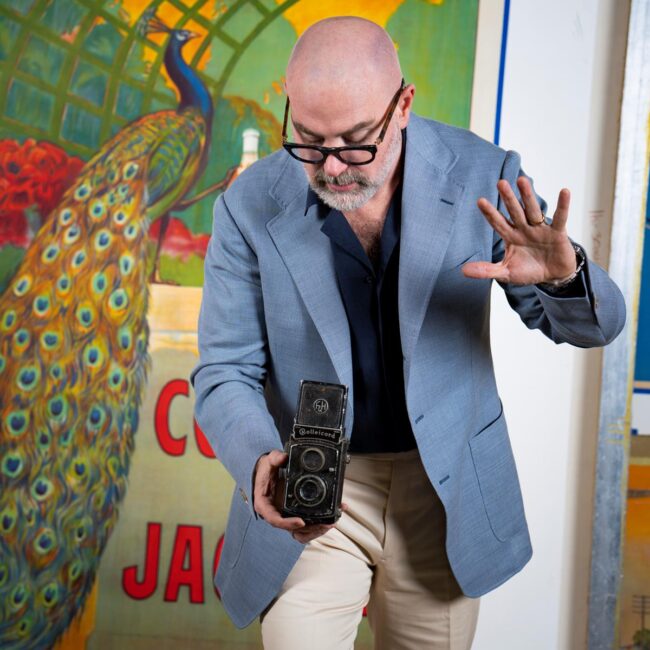
RECONSIDERING PASTELS
I’ve always dismissed pastels as being too preppy for my personality. These are the colors of croquet lawn parties, popped collar Lacoste polos, and sweaters loosely knotted around the neck. But last year, when I asked BRIO founder George Wang what fabrics he recommends for a summer sport coat, he didn’t rely on the usual choices of linen and Fresco in navy, tobacco brown, and olive green. Instead, he suggested silky Super 150 worsteds that occupy the bottom half of the color wheel. “That means medium to light blue, pink, coral, salmon, and citrusy colors such as lemon yellow,” he told me. Last summer, George commissioned a lightweight Irish linen sport coat in a faint lemon yellow, and a faded indigo blue suit in a wool-mohair blend. Having long admired George’s sense of style, I’ve been reconsidering pastels for my wardrobe since.
This season, The Armoury has a Model 3 sport coat made from a British wool-mohair hopsack fabric in the perfect shade of baby blue. “I almost got talked out of this fabric,” Mark tells me. “I loved it when I saw it, but when I showed the swatch to Alan and Jan, they tried to dissuade me. They said, ‘don’t do it; it will never sell.’ But when I posted a photo of it on Instagram, I received a lot of positive feedback. So I said, ‘OK, let’s give it a whirl.’ I’ve always wanted to have a light blue sport coat in the collection, but it’s surprisingly hard to find something in the right texture and color. Most light blue fabrics are too flat, whereas this one has depth and texture. It’s a hopsack weave with different shades of light blue and off-white when viewed up close.”
I think there’s another reason why the fabric works so well. Rather than being a blinding shade of baby blue, it’s relatively muted, soft, and dusty. Under certain lights, the fabric almost has a gray cast. For men who aren’t used to wearing pale, low saturation colors, this gray-casted light blue is an easy, first step into the world of soothing pastels. I love how Mark wears it with a crisp white shirt and either blue jeans or tan chinos. The model at The Armoury’s website pairs it with a saturated navy shirt and white pants (a long-sleeved polo in the same color would work equally well). “I think when you wear a jacket like this, it helps to mix up the color palette a bit,” Mark says. “Wear it with shoes and accessories that have bright colors or warm tones, so they support the jacket. Something like snuff suede shoes or a teal-colored pocket square. That way, things feel cheery and fun, rather than cold and somber.” When combined into an outfit, this baby blue sport coat feels like it’s just cheery enough for warm weekend outings and special Sunday occasions, even for a pastel skeptic like me.
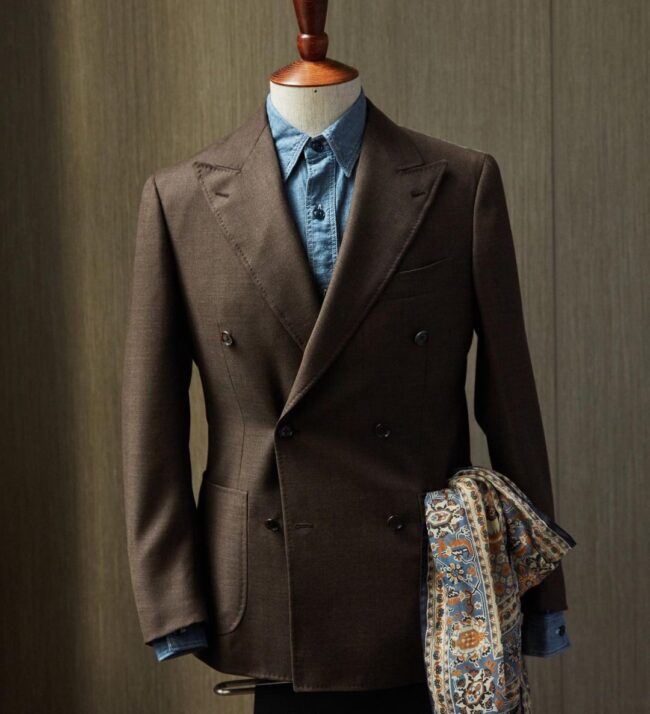
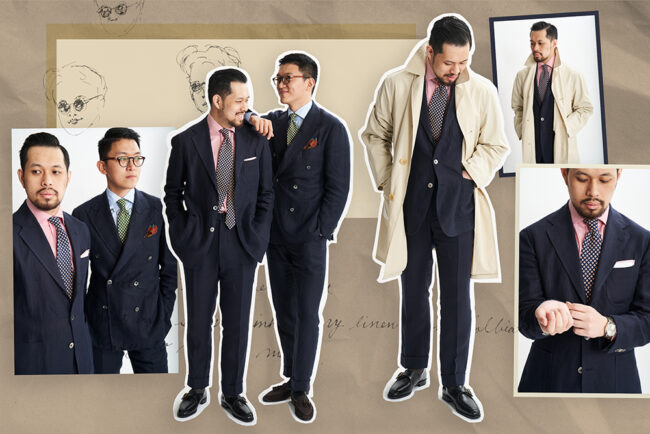
BODY DOUBLES
If you, like me, gained a bit of weight this past year from inactivity, you have two options. You can work the weight off by exercising (monotonous, strenuous, and requires time, commitment, and self-discipline). Or you can shop for tailored clothing (fun, exciting, and doesn’t even require money, just a willingness to take on debt).
Tailored clothing is unique in that it can help build a V-shaped figure. Since suit jackets and sport coats are made from multiple layers of material — haircloth, canvassing, and padding — a tailor can extend the shoulder line and sculpt the chest, thus making the waist look slimmer by comparison. The Armoury’s Model 6 is a perfect example. As a double-breasted coat with an extended shoulder line, swelled chest, and lapels that stretch from your hips to your shoulder joints, it can create the illusion of a more athletic figure. Double-breasted coats are especially nice in this sense since the long, bellied lapels sweep across the chest more than their single-breasted counterparts, thus heightening the effect.
A double-breasted coat can also just look very cool. The Armoury’s DBs are made with an exceptionally soft shoulder line — there’s no padding, just canvassing the stretches over the top of the shoulder — and has a sort of louche, almost cardigan-like feel. It’s a 6×2 coat, which means it has six buttons and is designed to be buttoned at the waist. However, the lapels have been constructed so that you can fasten the coat at the bottom, lengthening the lapel line and giving the coat a more casual feel. You can wear this season’s brown Pecora Nera double-breasted (made from the undyed wool of black sheep) with a pair of white jeans, a striped oxford button-down, and some snuff suede loafers. The navy linen suit can be paired with a saturated blue shirt and brown single monks for a dressy weekend gathering. Or, for a fun summer day at the museum, you can wear the same navy linen suit with a fine jersey, white t-shirt (worn tucked), and some plain Common Projects sneakers.
“Our double-breasted coats are cut ever-so-slightly shorter than our single-breasted, which makes them easier to wear on their own,” says Mark. “Both the brown Pecora Nera and navy linen DBs this season can be worn with grey trousers, tan chinos, or cream chinos. I wear our DBs with or without a tie, open or closed. It’s very versatile.”
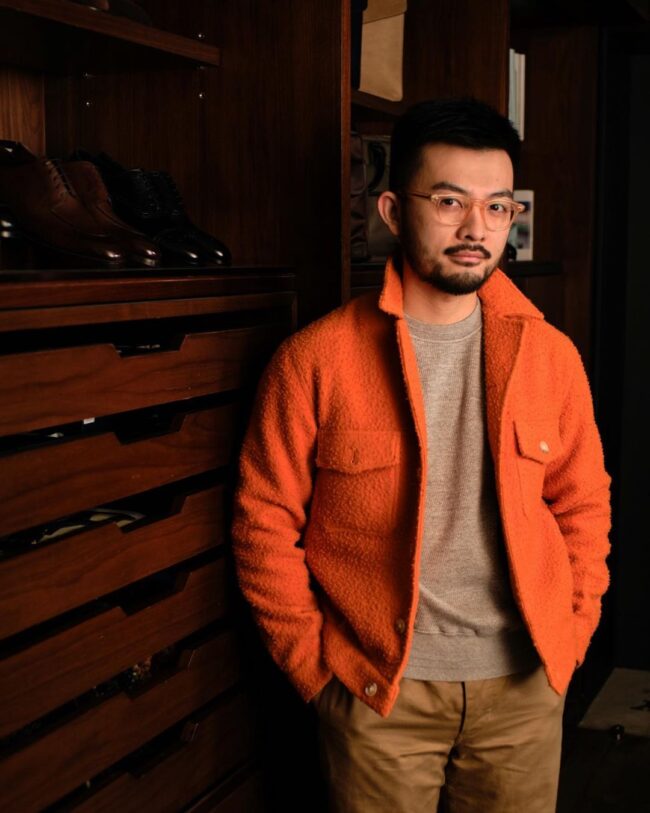
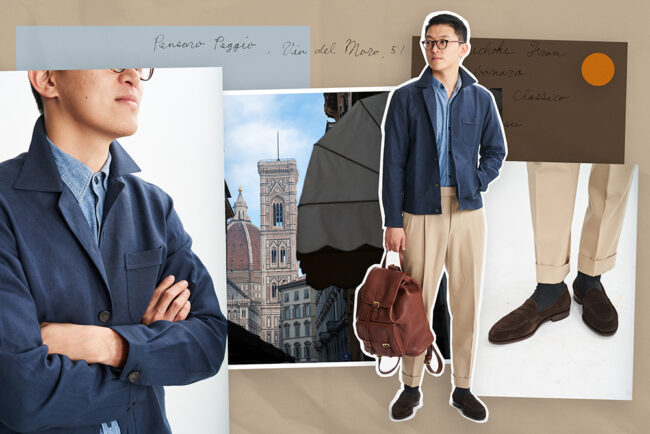
THE ROAD JACKET
As the suit has retreated from most corners of public life, tailored clothing companies have struggled with ways to stay relevant. Many have tried to transport a classic aesthetic into casualwear, but with varying degrees of success. To be sure, some casualwear items are classic, such as button-down shirts, merino v-neck sweaters, and flat-front chinos. But these items are often combined in ways that devolve into business casual. There’s a reason why the casual Friday movement has been so terrible for men’s style: meek, semi-professional clothes don’t do well without a tailored jacket.
In the last ten years, some classic menswear companies have tried to solve this problem by coming out with various takes on the shirt jacket, namely safari jackets, chore coats, and the Spanish Teba. In Paris, the relatively new label Lutays is creating a line of finely tailored outerwear pieces that celebrate French style. They have belted hunting jackets and chore coats made from fabrics typically reserved for tailored clothing. Drake’s produces a small line of shirt jackets at their Somerset factory. At The Armoury, you can find the 3PB (Three Pocket Blouson) and Teba-inspired City Hunter. The first looks surprisingly good in Permanent Style’s Escorial Tweed, while the second has become the unofficial outerwear piece of “watch enthusiasts.” Last year, Phillips Perpetual, the London-based private-sale watch boutique, worked with The Armoury to create a small collection of wool City Hunter jackets. And perhaps most notably, watchmaker Francois-Paul Journe is known to wear the style.
This season, The Armoury came out with something they call their Road Jacket. “It’s based on a vintage French cycling jacket that my colleague Jan found,” Mark explains. “French cyclists used to wear this style in the 1930s and ’40s. We took the design, rejigged it a bit, and are now able to make them through Ascot Chang either as ready-to-wear or MTOs in various fabrics.”
For classic menswear guys who are used to wearing tailored clothing, the Road Jacket will feel intimately familiar. In traditional Western tailoring, the idealized male figure is a V-shaped torso with long, columnar legs. This silhouette is fundamental to the idea of how to flatter a man’s figure because it makes the person look more athletic. The Road Jacket echoes some of these principles in that it has dropped shoulder seams, a cropped length, and a rounded silhouette. The short jacket helps visually lengthen the leg line, while the loose, rounded silhouette fills out the torso. For guys who want a more casual alternative to the sport coat, the Road Jacket can help you ride the fine line between directional casualwear and vanilla bland business casual. The new jacket should be up on The Armoury’s website sometime this spring.
